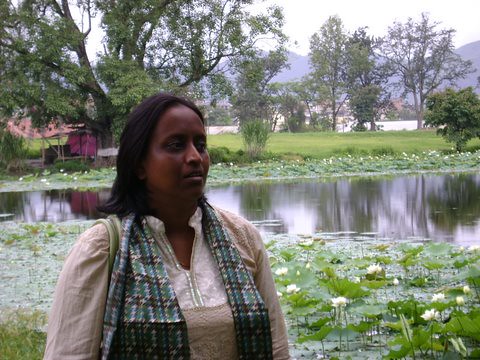By Anjuman Ara Begum, TwoCircles.net,
Teresa Rehman was honoured with the Wash Media Awards 2010 in the English category. She is an aspiring, hardworking journalist based in North East India. She has won several national and international awards for conflict reporting. In this interview with Anjuman Ara Begum of TwoCircles.net, she talks about challenges and achievements in her career.
What inspired you to be a journalist?
I always wanted to be a journalist though I am the first one in my family. I started off by writing in the children’s corner of local dailies and my ardour for journalism grew over the years. I always had a keen eye for details, was interested in observing people and had a flair for writing. It’s not mere a profession for me but a passion I thrive on.
What are the issues you covered most in your career and what are your interests and inclinations?
I report on the seven insurgency-ravaged northeastern states of the Indian union. Conflict reporting is an inevitable part of my reporting assignments and I have done hardcore conflict reporting by visiting many militant camps. But I also feel that this region is often in the news for the wrong reasons – for violence and bloodshed. For me the region is a paradise for journalists. There are many untold stories of common men, women and children waiting to be told and I always strive to chronicle day-to-day struggles in this unexplored terrain.

What aspect of your work you enjoy most?
Narrating the lives of the ordinary people gives me a sense of joy. I enjoy writing about the so-called marginalized issues like sanitation, health, agriculture, water etc.
Please share a memorable incident that took place in the course of your work?
There are many inspiring incidents and most of them involve meeting regular people in our everyday interactions. For instance, the postman in Majuli, the world’s largest river island, who had a different set of clothes to deliver the post during the annual floods. Or the roadside vendor in Manipur’s capital Imphal who wanted to build a ‘bridge’ from Imphal to Delhi because Delhi is too far, both geographically and emotionally.
My award-winning story for the WASH Media Award 2010 is based on the horrors my domestic help goes through to answer the call of nature during the annual floods. For details see http://infochangeindia.org/201001118124/Environment/Features/Sanitation-in-the-time-of-floods.html
What are the challenges you face while working specially in conflict areas in north east India and also on conflict issues?
As a journalist working in a conflict zone, we are constantly flirting with danger as we have to face the wrath of the state and non-state actors. This is a region where journalists are killed, beaten up and newspaper offices shut down. It’s a daily challenge we have to live with. Most importantly, we need legal safeguards while reporting conflict and counseling for mental trauma which we undergo while reporting conflict. Many fail to realize that journalists are human beings too, we can’t be indifferent all the time.
What are your achievements?
I have won several national and international accolades which I find very inspiring. Some of them being WASH Media Awards 2010, which honours the best in water, sanitation and hygiene journalism (http://www.wsscc.org/en/media/wash-media-awards/2009-2010/index.htm), Ramnath Goenka Excellence in Journalism Award for Reporting from J&K & Northeast(Print) for the year 2008-09, Sanskriti Award 2009 for Excellence in Journalism (www.sanskritifoundation.org) and the Seventh Sarojini Naidu Prize 2007 for Best Reporting on Panchayati Raj by The Hunger Project (www.thp.org).
Tell us about your parents and your family?
My father retired as an engineer and my mother (who is no more) was a teacher. My husband is an environmental scientist and I am a mother of two daughters.
What are your suggestions for the future female journalists in this region?
I really don’t see any difference between a male and a female journalist. For me, there can only be a good or a bad journalist. But yes, women have the additional burden of common problems like a gender friendly toilet or harassment at the workplace. But as journalists or storytellers, women do a better job, because I feel they are more perceptive and have the patience to listen better. But women do have to work harder to make a mark in this male-dominated profession specially in this region where journalism is still at a nascent stage.
For more about Teresa Rahman, click: http://www.teresarehman.net/
Links of her important stories:
http://infochangeindia.org/Agenda/Reporting-conflict/Who-is-Ima-Gyaneswari.html
http://www.tehelka.com/story_main42.asp?filename=Ne080809murder_in.asp
http://www.tehelka.com/story_main41.asp?filename=Ne280209the_peace.asp
http://www.alertnet.org/db/an_art/60167/2010/03/27-155538-1.htm
http://www.newslinemagazine.com/2010/03/in-the-hot-zone/
